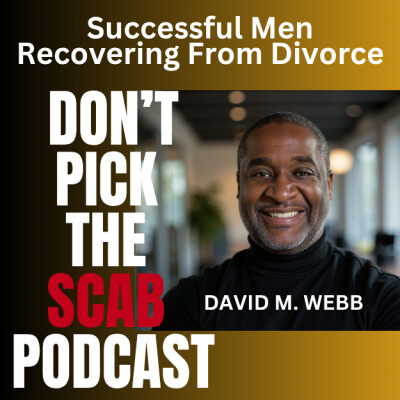Description
In this unique episode of Don't Pick the Scat podcast, host David interviews Cathy Nesbitt, who offers unconventional approaches to healing after divorce. Cathy shares her journey from worm composting advocate to laughter yoga teacher, explaining how laughter can be a powerful tool for managing stress and emotional healing. She discusses the science behind "love drugs" - natural chemicals like dopamine, oxytocin, serotonin, and endorphins that are released during laughter. The conversation explores how these natural compounds can help with divorce recovery and co-parenting challenges. Cathy emphasizes the importance of self-care practices, including morning routines and connecting with nature through indoor gardening. She explains how laughter yoga isn't about comedy or jokes, but rather a cardiovascular workout that bypasses the brain's stress responses and directly activates the body's relaxation mechanisms. The episode provides practical advice for men over 40 dealing with post-divorce stress, highlighting the importance of putting oneself first and developing sustainable wellness practices. Cathy's approach combines environmental consciousness with personal health, offering unique solutions for emotional healing and stress management.
10 Important Points for Listeners:
1. Laughter triggers the release of natural "love drugs" (dopamine, oxytocin, serotonin, and endorphins) that can help counter stress and negative emotions during divorce recovery.
2. You can only be in one nervous system state at a time - either stressed (sympathetic) or relaxed (parasympathetic). Laughter helps switch to the relaxed state.
3. During arguments, your frontal lobe disconnects, making logical thinking difficult. Using laughter can help break this cycle and return to a more rational state.
4. Start your day with three deep breaths and gratitude thoughts before getting out of bed - this sets a positive tone for managing divorce-related stress.
5. For co-parenting challenges, remember that staying present and calm is crucial. Laughter can help manage tensions and keep focus on the children's needs.
6. Indoor gardening and connecting with nature can provide therapeutic benefits during divorce recovery, especially as an activity to share with children.
7. Self-care should be the top priority - you need to be whole yourself before effectively dealing with ex-partners or children.
8. Practice emotional release rather than suppression - like a rabbit shaking off after danger, humans need to release trauma rather than hold it in.
9. Our bodies don't know the difference between real and simulated laughter - both provide the same physiological benefits for stress relief.
10. Finding a support group or community is crucial for men going through divorce - expressing emotions and "feeling the feels" is necessary for healing.
Hosted on Ausha. See ausha.co/privacy-policy for more information.





